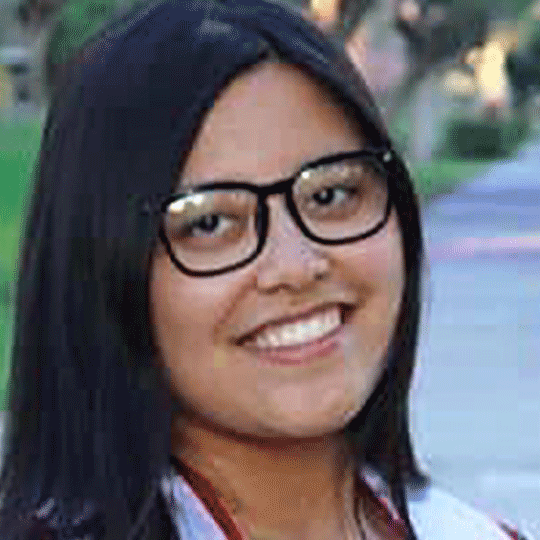June 16, 2021
Post Doctoral Fellow and CSUNs Department of Psychology Part-time Professor
From the beginning of his academic career, Jose Hugo Vargas has always been interested in psychology thanks to his mentors’ influence. Specializing in psychology and education, Vargas has always advocated for social justice, particularly for students.
“Racism is [the] problem.The criminal justice system is messed up. Our healthcare system is messed up. Our politics are messed up,” Vargas said. “Why is this happening? To me, it goes back to education, like ‘ah, that’s where it starts.’”
Vargas earned his doctorate degree the Interdisciplinary Ph.D. Program in Social Psychology at the University of Nevada, Reno. After graduating, he accepted a position as student equity coordinator and research analyst for the Los Angeles Community College District.
He is currently a Health Equity Research and Education (HERE) Center post-doctoral fellow and part-time professor in the Department of Psychology at California State University, Northridge. Vargas originally started his research path focusing on psychology and law, specifically restorative justice. However, as he progressed with his career, he shifted his focus to social psychology—particularly in education and students.
“In graduate school, I ended up taking a few classes, one in particular, which was the social psychology and sociology of education,” Vargas said. “That’s where [I realized], ‘oh my goodness, all of these inequities that exist [in terms of race], in terms of gender, in terms of ages, in terms of different abilities—a lot of this seems to start in the educational system.’”
Vargas’ research focuses on social psychology. One of his projects involved analyzing the biases in communication behavior among the candidates during the October 2019 Democratic Primary Debate, which consisted of eight men and four women.
“What we are doing in this paper is that we actually just coded the entire two-and-a-half or so hour debate. We coded [who said what to whom], was it a positive thing, was it a negative thing, [et cetera],” Vargas said. “The reason we were looking at these [speech elements] is because this body of research finds that there are biases in communication behavior.”
Vargas wanted to see how inequality was reproduced through communication among the different candidates. Specifically, he wanted to see how hierarchies are replicated within conversations.
“I’m interested more in social hierarchical dynamics, not so much in politics,” Vargas said. “I’m more interested [in] bringing it back to my area of interest, which is education. What are the power dynamics that exist in our many educational systems?”
Additionally, Vargas, along with Carrie Saetermoe and Gabriela Chavira of the CSUN psychology department and Building Infrastructure Leading to Diversity Promoting Opportunities for Diversity in Education and Research (BUILD PODER), published a paper advocating for the institutionalization of anti-racist and critical mentor training.
They asserted the need for anti-racist training in academia, specifically in the context of mentor-student relationships. The paper suggests critical race theory be used as a model for educational institutions to adopt.
“One of the reasons we need anti-racist training in academia is because there is structural racism in the United States that has never been addressed and continues to impact the lives of various minoritized populations,” Vargas said.
Though Vargas’ expertise is geared more towards the social psychology of education than health equity, his work at the HERE Center involves the research education aspect of the center—namely research methodology, collaborative efforts with other researchers and mentorship.
He believes that researchers need to be educated in research in order to address health equity or social justice issues.
“If we want to address those issues scientifically [and] if we want to come up with evidence-based, scientifically sound solutions to these very, very legitimate problems, research education has to be a component,” Vargas said.
Despite Vargas’ personal focus being research in education, he enjoys sharing it with other people’s passions that are more health-related, especially at the HERE Center. According to him, his job “is akin to a dream job” because he can play a role through research education to address social justice issues.
“I get to help solve real world problems through research and [science],” Vargas said. “It’s like, I don’t have to have to become a cop or soldier or a firefighter or some of these more like stereotypical occupations to help people and the citizens of a country that, for all its faults, I still love.”

